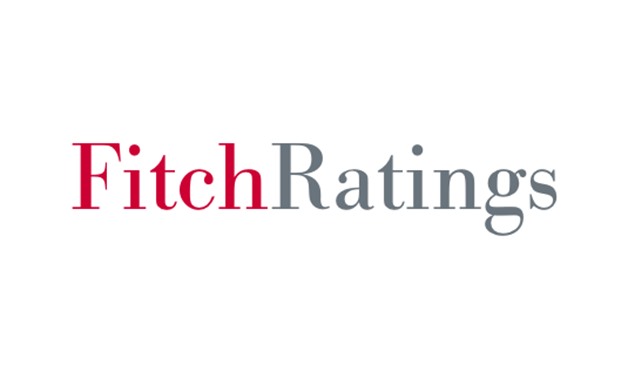
Fitch Ratings logo
CAIRO – 6 August 2018: Fitch affirmed on Monday Egypt’s Long-Term Foreign-Currency Issuer Default Rating (IDR) at 'B' with a Positive Outlook.
The rating agency attributed the ratings to the progress in executing an economic and fiscal reform program, greater macroeconomic stability and improving external finances.
“The ratings are constrained by large fiscal deficits, high general government debt/GDP, and weak governance scores (as measured by the World Bank governance indicators),” Fitch added in its report.
It also stated that the Positive Outlook reflects improving trends across a number of Egypt's credit metrics in response to the reform program.
Fitch praised the Egyptian government’s commitment to its economic program in line with the IMF’s $12-billion loan approved in November 2016 to support the Egyptian economic reform program.
Since then, Egypt has floated its local currency, losing around 50 percent of its value. Other economic reforms included more widely imposing taxes such as a recently implemented value-added tax (VAT) and cutting energy subsidies in aims of trimming the budget deficit.
The report forcasted real GDP growth accelerating to 5.5 percent in 2018/2019 and 2019/2020, anticipating average inflation declining to 11.6 percent in 2019, from 13 percent in 2018.
Planning Minister Hala el-Saeed announced earlier that Egypt's growth rate for the 2017/2018 fiscal year hit its highest level in ten years as it recorded 5.3 percent against 4.2 percent the prior year.
The Central Agency for Public Mobilization and Statistics (CAPMAS) also announced that its annual consumer price inflation slipped to 13.8 percent in June 2018 from 30.9 percent in the same month of 2017.
On a monthly basis, inflation increased 2.9 percent in June, compared to the previous month, to record 282.7 points, CAPMAS said.
“Real GDP growth stabilized at 5.2 percent in the first half of 2017/2018, driven by tourism, construction and gas extraction,” the report stated.
It also noted that inflation dropped to 11.5 percent y-o-y in May, after averaging 29.5 percent in 2017. “In June, inflation increased to 14.4 percent following further subsidy reforms ahead of FY19. We forecast smaller current account deficits (CAD) in 2018-2020, averaging 2.5 percent of GDP, and maintenance of adequate FX reserves, covering on average six months of current external payments (CXP),” the report read.
Fitch said that reserves covered an average of 2.8 months of CXP in 2012-2016, noting that external debt/GDP increased sharply in 2017. It expected these levels to moderate in 2018-2020, and a large chunk remains on concessional terms.
“Public finances will remain a key weakness of Egypt's credit profile, but the trend is positive, with the budget deficit and government debt improving in FY18 largely in line with expectations,” it further stated.
It also estimated that general government debt/GDP fell to 93.6 percent in 2017/2018 from 103.1 percent the prior year.
“We expect further fiscal consolidation will help reduce general government debt/GDP to 88 percent in FY19, and in the longer term, to around 75 percent by 2022/2023, close to government debt levels at the time of the Arab Spring uprisings,” it also noted.
In January, Fitch has revised the Outlook on Egypt's Long-Term Foreign-Currency Issuer Default Rating (IDR) to Positive from Stable and affirmed the IDR at 'B'.

Comments
Leave a Comment